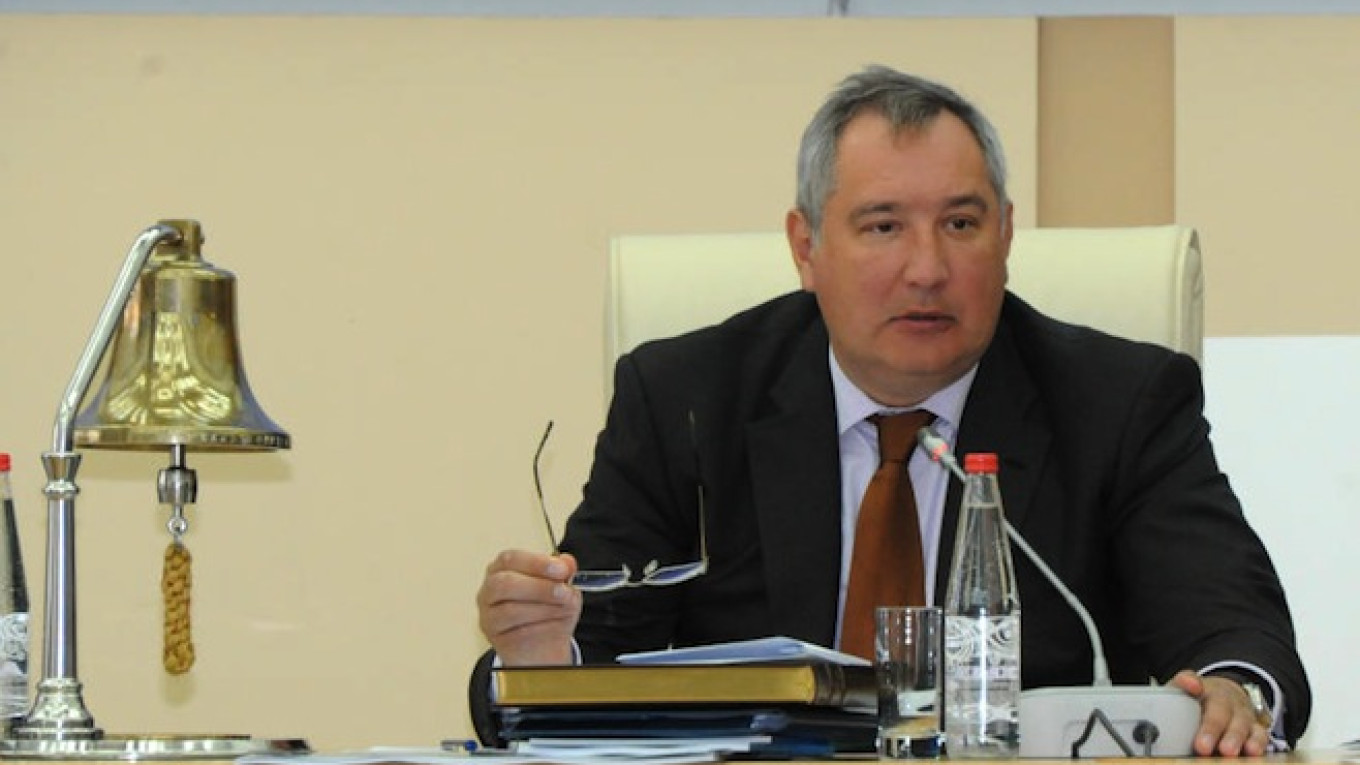Russia is preparing a deal to sell its highly capable rocket engines to Beijing in return for access to Chinese electronic components used in spacecraft construction, Russian Deputy Prime Minister Dmitry Rogozin said on Monday, the TASS news agency reported.
Discussing prospective Russian-Chinese economic projects at an expo in the Chinese city of Harbin, Rogozin said the two sides were pursuing cooperation in the field of spaceflight — a sector that both countries are keen to develop.
“We are talking about an agreement to supply Russian rocket engines [to China], and the reciprocal delivery of Chinese micro-electronics that we need for things like the construction of spacecraft,” Rogozin was quoted as saying.
The deal would be a big win for Russia's ailing space sector. Although the industry produces rocket engines that are regarded as some of the best in the world, the only foreign customer is the United States, which uses them for both military and civilian satellite launches.
This connection between the U.S. and Russian space industries became a source of tension during the Ukraine crisis last year, after Rogozin threatened to end sales of the engines in response to Western sanctions against Moscow.
The rhetoric faded over the course of 2014, as both sides realized the existing arrangements were mutually beneficial, and Russia had no other customers lining up to buy rocket engines en masse.
But a supply deal with China could give Russia additional leverage over the U.S. space industry.
Rogozin on Monday said the two countries were working on an agreement to be signed during Prime Minister Dmitry Medvedev's visit to China in December.
He also announced that the two sides planned to launch a joint venture specializing in the production of microchips and receivers for the Russia's Glonass satellite navigation system and its Chinese analogue BeiDou. Both are marketed as alternatives to the U.S.-operated Global Positioning System (GPS).
Russian-Chinese bilateral economic and technological ties have grown in the wake of Moscow's falling out with the west over Ukraine, and the two countries have discussed several ambitious long-term space projects that could be pursued together, such as a lunar exploration program, Rogozin said.
Contact the author at m.bodner@imedia.ru
A Message from The Moscow Times:
Dear readers,
We are facing unprecedented challenges. Russia's Prosecutor General's Office has designated The Moscow Times as an "undesirable" organization, criminalizing our work and putting our staff at risk of prosecution. This follows our earlier unjust labeling as a "foreign agent."
These actions are direct attempts to silence independent journalism in Russia. The authorities claim our work "discredits the decisions of the Russian leadership." We see things differently: we strive to provide accurate, unbiased reporting on Russia.
We, the journalists of The Moscow Times, refuse to be silenced. But to continue our work, we need your help.
Your support, no matter how small, makes a world of difference. If you can, please support us monthly starting from just $2. It's quick to set up, and every contribution makes a significant impact.
By supporting The Moscow Times, you're defending open, independent journalism in the face of repression. Thank you for standing with us.
Remind me later.


